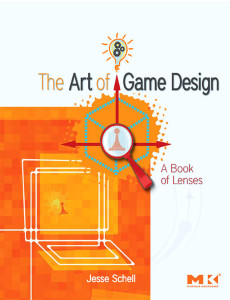 Schell’s The Art of Game Design is not designed to be a User Experience design text. But it is designed to be a user experience design text. It’s about designing experiences within the game realm, but unlike many other foundational texts in contemporary user experience design which ground themselves in the web and product, Schell grounds us in the broadest terms from the book’s first pages.
Schell’s The Art of Game Design is not designed to be a User Experience design text. But it is designed to be a user experience design text. It’s about designing experiences within the game realm, but unlike many other foundational texts in contemporary user experience design which ground themselves in the web and product, Schell grounds us in the broadest terms from the book’s first pages.
What Skills does a Game Designer Need?
A heady and incredibly broad question. Many first-time User Experience designers, those new to the craft delve right into the nitty gritty of wireframing. Of product design. Very few [especially in interviews! shockingly few] recognize that whatever their background [I have a Bachelor’s in some non-UX field; my hobby is totally unrelated] it probably has taught them something about experience; that is if they’re astute and practice listening (p. 5)
For an introduction to Game Design, let me list the skills that Schell describes as being helpful, beneficial, and to some degree, even required to make a good game:
By calling them to mind in the first 10 pages, Schell reminds the reader that Game design, as in all experience design, requires a sound understanding of a vast range of disciplines.
Animation, Anthropology, Architecture, Brainstorming, Business, Cinematography, Communication, Creative Writing, Economics, Engineering, Games, History, Management, Mathematics, Music, Psychology, Public Speaking, Sound Design, Technical Writing and Visual Arts (p 3-4).
By calling them to mind in the first 10 pages, Schell reminds the reader that Game design, as in all experience design, requires a sound understanding of a vast range of disciplines. Like a Victorian era naturalist, who must combine knowledge of several scientific disciplines; or a true polymath, the Designer [notice dropping the prefix] must have a diverse breadth of expertise, but also know enough to know what they don’t know.
the Designer must have a diverse breadth of expertise, but also know enough to know what they don’t know.
A rare reminder that in a world where we see the web professions increasingly credentialed [how many thirty-something web professionals went to school for what they do now? contrast that with today’s 20-somethings….] that User Experience design knows no single best happy path. Well other than an appetite to continue learning and well, listening. But
